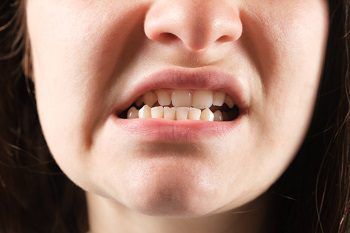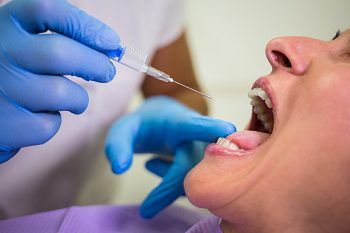Treatment options for TMJ Disorders
A series of illnesses known as Temporomandibular Joint and Muscle Disorders (TMJ) cause discomfort and dysfunction in the jaw joints and muscles controlling mouth movement. Women are more likely to suffer from the illness than males. Jaw joint or muscle discomfort is not usually an indication of something more serious for most individuals. These disorders cause only little discomfort; they come and go in cycles. There are different treatment options for TMJ Disorders with little or no treatment, the discomfort ultimately fades away. On the other hand, more severe and long-lasting symptoms arise for a small percentage of the population.
Treatment Approaches:

Experts advocate adopting conservative, reversible treatment options for TMJ disorders until irreversible treatments can promise more safety and effectiveness. Conservative treatments do not require surgery or tissue invasion of the face, jaw, or joint. Reversible therapies do not alter the structure or location of the jaw or teeth permanently. Even if a patient's TMJ condition persists, extensive treatment is unnecessary for most individuals.
Conservative Treatments:
Most jaw joint and muscle disorders are transient and don't worsen, so simple treatment may be enough to ease discomfort.
At Home Practices
Steps that may alleviate symptoms include:
- eating soft meals
- using cold packs on the jaw to reduce pain
- avoiding severe jaw movements
- studying stress-reduction strategies
- doing mild jaw stretching and relaxing activities that may increase jaw mobility
- exercises might be prescribed by a medical professional or a physical therapist if needed

Pain Medications
Many persons with TMJ issues find brief relief from jaw pain with over-the-counter pain medications or NSAIDs. You may be prescribed stronger pain or anti-inflammatory drugs, muscle relaxants, or anti-depressants by your dentist or physician if necessary.
Stabilization Splints
An oral appliance, also known as a stabilizing splint or bite guard, is a plastic device that fits over any arch. Frequently, stabilization splints help in resolving TMJ issues. Their usefulness in relieving pain is still unproven. Although if the dentist recommends this, there should be no long-term effects on the bite from using this appliance. Stop wearing a splint if it causes discomfort or impairs your bite.
The conservative, reversible remedies suggested are pain relievers, not TMJ solutions. If symptoms last a short time and don't worsen, see your doctor. Stop wearing a splint if it causes discomfort or impairs your bite.
Irreversible Treatments
When other treatment options for TMJ disorders fail, your doctor may recommend surgeries like:

- Arthrocentesis: A minimally invasive treatment in which tiny needles are inserted into the joint so that fluid can rinse the jaw joint and remove debris and inflammatory effects.
- Injections: Injected corticosteroids may assist certain persons. Injecting Botox and similar into the jaw muscles for chewing may reduce TMJ symptoms. The FDA has not yet authorized Botox for use in treating TMJ issues.
- TMJ arthroscopy: Arthroscopy may be as successful, if not more so, than open-joint surgery in some circumstances. After inserting an arthroscope, tiny surgical instruments (cannulas) are utilized to do surgery in the joint space. The risks and consequences of open joint surgery are lower when doing TMJ arthroscopy, although there are still some drawbacks.
- Modified condylotomy: Surgery on the mandible (the bone that supports lower teeth), but not in the TMJ itself, is the focus of modified condylotomy. In the event of discomfort or locking, it may be beneficial.
- Open-joint surgery: If a structural issue in the joint causes your jaw discomfort, your doctor or dentist may recommend open-joint surgery (arthrotomy) to repair or replace it. Careful examination is crucial for open-joint surgery as it carries higher hazards than other operations.
Contact your Pinole dentist, Dr. Hoss Abar, DDS, MSD, at Abar Orthodontics to get information about TMJ disorders.
Resource:
This media/content or any other on this website does not prescribe, recommend, or prevent any treatment or procedure. Therefore, we highly recommend that you get the advice of a qualified dentist or other medical practitioners regarding your specific dental condition
More To Explore
About Us
We believe that every patient deserves to feel confident about their smile. Years of experience creating beautiful and flawless smiles.
Opening Hours:
Monday - Thursday: 8:00 AM - 5:00 PM
Friday: 8:00 AM - 12:00 PM
Saturday - Sunday: Closed
Abar Orthodontics, Pinole, CA
1500 Tara Hills Drive., Suite 204
Pinole, CA 94564
Abar Orthodontics, San Leandro, CA
145 East 14th street., #100
San Leandro, CA 94577
© 2026Abar Orthodontics | All rights reserved | Powered by:Vigorant, Inc.
